Thing I’ve Been Mulling Over For A While: Some Really Good YA Fantasy Novels Of My Childhood (Young
Thing I’ve been mulling over for a while: some really good YA fantasy novels of my childhood (Young Wizards - no one who knows me is surprised by this) really emphatically gave me tools to understand and dismantle my own “white supremacist delusion,” as Sonya Renee Taylor puts it. The construction of the cosmos in these books formed my worldview at a really early age. They have helped me, decades later, to believe deeply and truly in both my own ability to support and uphold Evil in all of its guises, no matter how ‘good’ or ‘nice’ I may inherently see myself to be - and my own power to dismantle Evil in all its guises, within myself, as well as in the world beyond myself.
I was watching this IG live video where Taylor powerfully explains how important it is to shift from seeing whiteness as something intrinsically ours to possess rather than as the result of a dehumanizing system that we can - and in fact are ethically called upon to - uproot. I understand Taylor to be saying that I, as a person assigned power by whiteness, have a duty to continually identify and reject the delusions of whiteness starting with myself.
There’s an image Taylor uses, in this video, of searching inside of yourself for the spaces where this toxic ideology of whiteness has taken hold - and to find and uproot it. And immediately I saw a climactic moment from High Wizardry, one where Dairine has a realization about how intimately entropy has its hold upon her:
She stopped, as the answer rushed into her mind from the manual. Where entropy is, it said, there its creator also is, either directly or indirectly…
I’m a product of this universe, after all, she had said to the mobiles. It’s in me too…
Her heart turned over inside her as she came to know her enemy. Not a Darth Vader, striding in with a blood-burning light-sabre, not something outside to battle and cast down, but inside. Inside herself. Where it had always been, hiding, growing, waiting until the darkness was complete and its own darkness not noticeable any more. Her Enemy was wearing her clothes, and her heart, and there was only one way to get rid of It…
She was terrified. Yet this was the great thing, the thing that mattered […]
I’d hazard a guess that many of us have a primary conditioning to see evil precisely as “something outside to battle and cast down.” I say this about evil in general; I think it’s probably extra true for the ways that white people approach the evil of white supremacist delusion. I see it a lot with the teenagers that I now teach: the actively anti-racist white kids who really want to march, to have hard conversations with other people, to change laws, to show up at city hall meetings…and who don’t understand that, while those are all good and important things to be doing, if they are all you are doing, they will not be enough. They are all ways of seeing the problem as “something outside to battle and cast down” instead of as something that is LITERALLY “wearing [your] clothes, and [your] heart.”
The good news - also from High Wizardry - is the possibility of full and complete liberation on the other side of the recognition, and the reckoning that follows. The snatches of it glimpsed within this life, the work of widening the ground… The belief (which Duane’s world offered me, and which my Christianity never did) that even the one who dreamed Evil into being can be liberated and redeemed from it…and that that, and no less, is the scope of the work.
(YW also taught me, perhaps most importantly of all, that this work is collective and done best when part of an ever-widening family / network / team.)
More Posts from Outofambit and Others
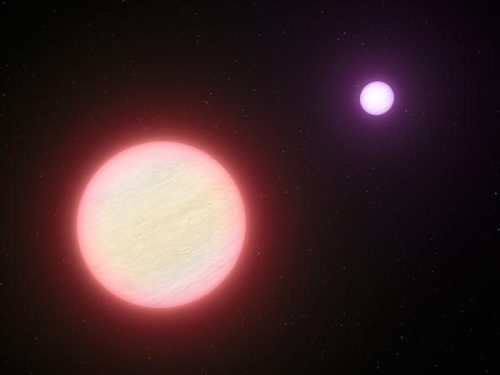
Coldest Star Found—No Hotter Than Fresh Coffee
According to a new study, a star discovered 75 light-years away is no warmer than a freshly brewed cup of coffee.
Dubbed CFBDSIR 1458 10b, the star is what’s called a brown dwarf. These oddball objects are often called failed stars, because they have starlike heat and chemical properties but don’t have enough mass for the crush of gravity to ignite nuclear fusion at their cores.
With surface temperatures hovering around 206 degrees F (97 degrees C), the newfound star is the coldest brown dwarf seen to date.
Keep reading.
Since it came up in the chat, the “official”, from Diane Duane herself, pronunciation of ‘dai stiho’.
With the new book being out and my never having read "A Wizard of Mars" I decided to pick up the New Millennium ebook editions. I'm getting close to the end of "So You Want to be a Wizard" and while I haven't gotten to the part where Nita reads from the bright book I know it's coming and I can already feel my heart breaking. It made me wonder: are Nita's and Kit's experiences with the Lone Power singularly unique? Do other wizards have opportunities like when Nita writes in the bright book?
Yes. And no. Except sometimes. In fact, always.(See also, “go not to the writer for advice, for she will say both ‘yes’ and ‘no’ and ‘wait two seconds while I come up with some proto-canonical material that I’ve never had reason or opportunity to mention to anybody before.’”)
Ordeals serve a number of purposes. Primarily they help the Powers that Be determine, in the simplest and most straightforward way, whether or not the wizard to whom they are potentially entrusting a lifetime of energy will actually commit to use that energy in moments of crisis. Equally primarily (if that phrase makes any sense at the human level, while remembering that from the Powers’ point of view, “all is done for each”) they routinely serve to solve or at least illuminate interior issues that the new wizard needs to get handled. This is besides actually solving a problem or concluding an intervention that some part of the local space-time continuum needs enacted / sorted out.
So you understand that no two Ordeals are ever alike, but every single time their effect is identical to that of saving the world — because when you save a part of it, even a very small part of it, “saving the world entire” is nonetheless exactly what you’re doing. Existence is, in this particular mode of analysis or expression, holographic: intimately interconnected at the quantum level, in such a way that — in what may be the best possible use of this phrase — “size doesn’t matter.” When (for example) instead of squashing a bug in the house, you get a glass and a piece of paper and catch it and put it outside, it may seem like nothing in particular… but on levels we are not even remotely sensorially equipped to perceive, when one chooses to spare life instead of taking it, existence quakes to its roots as living experience is kicked just a wee bit further into the Life direction. Choice always matters. And Ordeals are a particularly acute form of choice; both an expression of personality and a shaping of it – the iron in in the fire, submitting to the hammer, willingly. (And possibly, ideally, dragging the Lone Power into the fire with it, in just one more tiny little change.)
So the immediate answer is that all wizards have such opportunities. They may not look so earthshaking — but appearances deceive. One Ordeal or another may not seem dangerous, they may seem to involve very small changes in the local environment… But without fail, when passed, they are enough to convince the Powers that Be that the wizard in question is one who, for their definition of wizardry, is going to get the job done. And that’s what counts.
Hope that answer makes sense. :)
Hello! I was wondering if you’ve shared your ao3 account? Like, have you acknowledged “this account is mine,” or do you keep it personal? Totally respect if you keep it under wraps I just wanted to know if I’m missing something. Hope my wording of this makes sense!
No, it's OK, I get it. You're asking "Have you publicly ID'd a given AO3 account as yours?"
No, and I'm not going to. Because it contains fanfic I've written for pleasure—exactly as I started writing it in my teens—and I have no desire to have that publicly connected with me.
Leaving the usual legal concerns aside—and not being even slightly concerned that a judge would fail to find the fiction "transformational", if the truth came out in a court of law—a significant part of this effort is about answering the question: "What would happen if people read fiction of mine and they didn't know Diane Duane was responsible for it? What would their reaction be?" That urge to discover whether the fiction stands on its own, without the inevitable shadow cast by the reputational backstop, still comes up for me in some moods. When the itch has come up, I've scratched it. And all I can say is that, by and large, the results have been satisfying.
Frankly, it's a ton of fun. There's no one to satisfy (at the most immediate level) except me and the local embodiment of the Creative Urge. No one will ever accuse me of "just churning [this] out for more $$$$", because there is no $$$$. And there's room to stretch further and harder than I might normally do in my public work (because there's more forgiveness for failure: and in the arts, I think, failure is absolutely one of the most effective ways to grow). Whatever comes back to me in return for this work—and it is work, some of the hardest I've ever done—is in the form of raw appreciation. So, people, on behalf of my colleagues, let me just say: comment on AO3 fics, yeah? You don't have to be fulsome about it. A word or two will do. And bestow kudos where you may. It's all an AO3 fanfic writer asks.
...And of course some people will say: "Are you off your rocker? You're traditionally published for decades, you have awards, you've been on bestseller lists, how can you not be sure that what you're doing's any good?" ...But you know, no writer is sure all the time. All of us wake up in the middle of the night some time(s), thinking "I'm not sure I've still got it..." and squeezing our eyes shut in terror of future reviews that will contain the horrible conjecture that Maybe We Never Really Had It To Start With. When you've spent a significant portion of your lifetime making stuff (up) out of nothing, the horrible suspicion that maybe it really has been nothing all the time—I mean, nothing nothing—is unavoidable.
So sometimes some of us want to go out in disguise (and I don't mean paid pseudonymic work: that proves nothing in this particular arena) and see how we fare. I know other traditionally-published writers who've done this—names that would surprise you—and who, by and large, have done it for the same reasons. We are the dark figures, cloaked, sitting in the shadows of some of the more prominent fandoms that express themselves on AO3; eyes glinting in the firelight, enjoying the reactions for the stories we've got to tell.
It's not bad here, in the shadows. For one thing, you're in a better position to appreciate the figures moving in the light. There's a lot of extraordinary talent on AO3 (and elsewhere in the online fanfic world), sharing stuff with us out of their own hard work and from their own urge toward grace. It's a privilege to read them. (Some of them are better writers than I am. I appreciate them: and comment, and leave kudos, because that's how appreciation is concretely shown. And I take notes.)
Beyond that, there's nothing much to add except that I have no plans to stop. And also: that I think kindly every single day of the very small and exclusive group of people who know "who" I am on AO3, and have kindly kept that data to themselves. Your confidence honors me, friends. May the Work do you honor in return. :)
And now: I owe you all an update, so you'll have to excuse me while I get on with it. :)
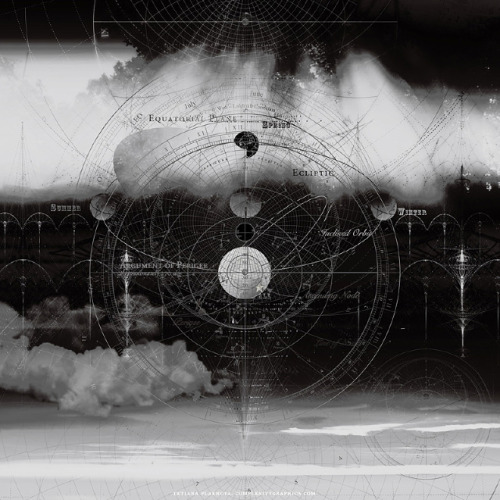
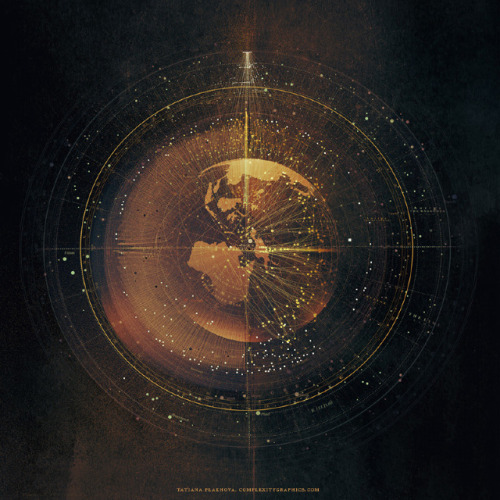

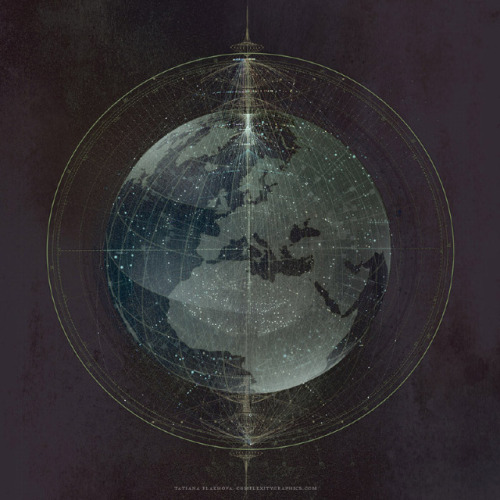


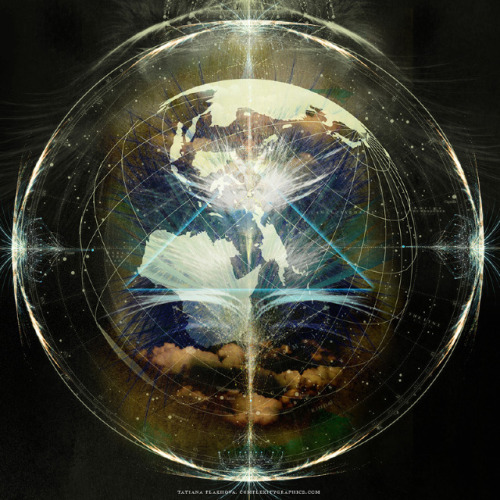


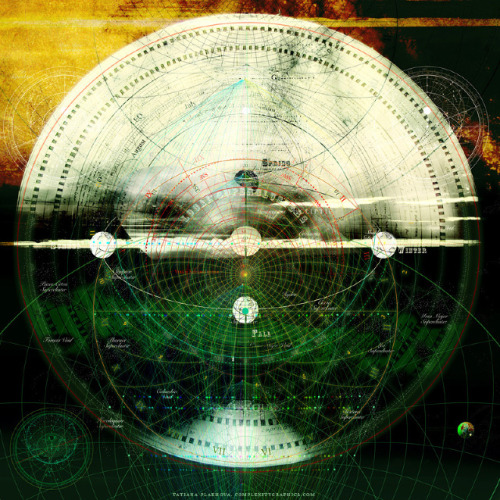
Orbital Mechanics by Tatiana Plakhova



Galactic Poetry
The downfall of living in an urban center, is that all we get to see during the night are blankets of cloud (possibly smog), and if we’re lucky, a few stars. What artist Sanjeev Sivarulrasa is trying to show in his work, Night Light, is what we are missing out on; a magical world, swimming through space, with galaxies and nebulae bejeweling the cosmos.
It is visual poetry.
The artist uses astrophotography to capture the various forms and colours of the stars and planets outside of an observatory setting. According to journalist Becky Rynor, it is as if he is capturing the great masterpieces that our ancestors would see; a natural art. Space does not have to be sacred scientific ground; it can also be merely another aesthetic aspect of our lives, that inspires people to think about the greater world around us. The simple observer plays as big of a role, as the great scientist. When this right to observe is taken away from us, via artificial city lights, we have to make the effort to go to the sources such as countryside’s, forests, lakes, and mountains. We must go to the nature, to connect back to ancient ideas of aesthetic beauty, and renew the senses. Sanjeev’s astrophotographs are to be seen as meditative, bringing awareness to our daily surroundings, and that sometimes, we need to take a step back, and see the bigger picture.
Night Light is currently exhibited at Karsh-Masson Gallery, until the 5th of May, 2013, and there will be an artist talk on the 24th of March, 2013 -Anna Paluch

Terraformation of Mars: A New Look
We look at Mars now as a forgotten Red Planet that almost seems barren and life-less judging from our available images and study of it. But study shows Mars was once as ecologically prosperous as our own Earth. But what happened to all of its waters? Better yet why is it so dry and lacking any plants? Once the abundance of oxygen left and the waters froze over or dried off the planet became what it is today. But what if we can in a way reactivate’ Mars? Welcome to Mars, Terraformed’.
About Terraforming
Transforming Mars will be a long and complicated process. But this is exactly the type of subject that interests space researchers like Christopher McKay of NASA Ames Research Center. First, greenhouse gases, like chlorofluorocarbons that contribute to the growing ozone layer on Earth, will be released into the atmosphere. This traps the heat from the Sun and raises the surface temperature by an average of 4 degrees Celsius. In order to achieve this, factories would manufacture chlorofluorocarbons derived from the air and soil. A single factory would require the power equivalent of a large nuclear power plant.
The increasing temperature would vaporize some of the carbon dioxide in the south polar cap. Introducing carbon dioxide into the atmosphere would produce additional warming, melting more of the polar cap until it has been vaporized completely. This would produce an average temperature rise of 70 degrees Celsius.
With the temperature this high, ice will start melting, providing the water needed to sustain life. This water would raise the atmospheric pressure to the equivalent of some mountaintops. While this would be a survivable level, it may still require the use of an oxygen mask. The next step, which may take up to several centuries, would be to plant trees that thrive on carbon dioxide and produce oxygen.

NASA: Terraforming Mars
Terraforming is the process of transforming a hostile environment into one suitable for human life. Being that Mars is the most Earth-like planet, it is the best candidate for terraforming. Once just the subject of science fiction novels, it is now becoming a viable research area. The famed astronomer and Pulitzer prize winner, Carl Sagan, says that there is enormous promise in the search for ancient life on Mars. If life was once sustainable on Mars, it is important to know what caused Mars to evolve into the cold and lifeless planet it is today. With this knowledge, we can terraform Mars by reversing the process.
NASA scientists believe that it is technologically possible at the present time to create considerable global climate changes, allowing humans to live on Mars. But this will not be by any means an easy task. Raising the atmospheric pressure and surface temperature alone could be achieved in a few decades.
This research has strong environmental implications for Earth. What researchers are trying to do involves global warming, a sort of greenhouse effect on the cold planet Mars. Scientists may be able to test their hypotheses about global warming in their attempts to elevate Mars’ surface temperature. Likewise, once theories, they may be applied to our own planet in an attempt to reverse environmental damage done by pollution and deforestation.
whenever i see great meta like this, i feel the need for a reread <3
Some thoughts on Kit Rodriguez
So pretty much every time I re-read or re-listen to any part of the Young Wizards series, I discover new things about the books and myself in relation to them, despite the fact that I have been reading them for over half my life now.
This morning I was walking back from yoga and listening to my audiobook of So You Want to Be a Wizard, and I was just at the part where Nita and Kit meet for the first time, and I was feeling all sorts of warm fuzzies and just wanting to jump into the novel and hug these kids and tell them that it really is going to be okay in the end because they will make it be okay, together.
And then I realized that I’d never, in ten years, thought about this first encounter from Kit’s perspective – or really thought at all about what Kit was doing before Nita came along. We know that he took the Oath about a month before meeting her, that he’s done a few small wizardries and they’ve worked, but he’s still getting bullied and the fact that even Nita knows about the recent bullying suggests that, if anything, it might have escalated since his taking of the Oath.
So put yourself in Kit’s shoes for a second. You’re smart, but you’re small and you don’t talk like anyone else, your teachers like you because you’re dedicated to your work but that only makes it harder to get along with everyone, you’re twelve years old and yet you don’t have any friends to go out and play with, so you wind up in the city on a weekend antique-hunting with your parents (horror of horrors), and you’re more or less trying to make yourself unseen in the back of the store while they haggle over the price of some armoire that you find to be, frankly, a little hideous. You’re looking halfheartedly through the meager collection of boos, the only things in this place worth a second glance in your opinion, and then suddenly one of them bites you and you think, “God, just my luck, could this day get any worse?”
And then you pull out the book. And you open it. And the universe holds its breath for a second. Exhales: slowly, cautiously. Watches to see what it is you’ll do.
You take the Oath before you leave the shop.
And then you wait.
At first it’s not so bad. You’re light on your feet, heart fluttering in anticipation, can’t wait to get home to try some of this out.
A week later, you’ve done a few spells, nothing major, but you believe in the power now, the way you hadn’t allowed yourself to at first. You marvel in it, you spend all your free time sunk in the sensation of truly and deeply knowing the world around you in its own language. You talk to your dog, which in itself is sort of usual, but now your dog talks back.
But. There is always a but. Because the bullies are noticing that you’re happy, and they may not understand why, but they don’t approve. You say the wrong thing in class, correct one of them, high on the power the wizardry’s given you – only to find yourself, an hour later, with face pressed to asphalt, grit in your eyes, and the knowledge that even a wizard can’t do everything.
This is not the noble Ordeal the Manual talks about. This is just the pressure of the everyday, pushing and pulling you out of shape. And life’s starting to feel a bit like it did before you ever found that book. The wizardry works, but every night before bed when you check your status and it still says “probationary” you start to wonder if you’re ever going to have an Ordeal, or if maybe the Powers That Be are starting to regret the energy they expended on a beat-up broken-down kid like you.
You think, sometimes, about giving it up before They can take it away.
Every time, you say to yourself, not yet. Just one more shot. There’s always another spell to try, another chapter of the Manual to read. Maybe if you work harder the Ordeal will come. Maybe the hard work is the Ordeal. Maybe it’s only natural to feel these doubts – to wonder, at times, if you’re just dreaming it. To wish for someone with whom you could share that dream, so you could know that it’s real and that it’s really worth it.
When the girl appears, just as your spell has ground to a standstill, you’re terrified – you don’t know how to talk to girls! – but you also start to hope again. Because what if, all this time, she’s been what you were missing?
You spell with her and the world goes quiet and you know that nothing will ever be the same again and you are so unbelievably ready for that.
(Brief thought on Deep Wizardry ramifications of this potential Kit characterization behind the “read more,” since one of my followers has just started reading SYWTBAW and I don’t want to spoil her!)
Keep reading
-
 kcmalice liked this · 1 year ago
kcmalice liked this · 1 year ago -
 yusukesmomjeans reblogged this · 1 year ago
yusukesmomjeans reblogged this · 1 year ago -
 theperilousrealm liked this · 3 years ago
theperilousrealm liked this · 3 years ago -
 salteesblog liked this · 3 years ago
salteesblog liked this · 3 years ago -
 kk-maker liked this · 3 years ago
kk-maker liked this · 3 years ago -
 lingering-sunrise reblogged this · 3 years ago
lingering-sunrise reblogged this · 3 years ago -
 polymath4ever liked this · 4 years ago
polymath4ever liked this · 4 years ago -
 locaphi liked this · 4 years ago
locaphi liked this · 4 years ago -
 thegayjax liked this · 4 years ago
thegayjax liked this · 4 years ago -
 michaelwaev liked this · 4 years ago
michaelwaev liked this · 4 years ago -
 brieflie liked this · 4 years ago
brieflie liked this · 4 years ago -
 rebeccaphilana reblogged this · 4 years ago
rebeccaphilana reblogged this · 4 years ago -
 rebeccaphilana liked this · 4 years ago
rebeccaphilana liked this · 4 years ago -
 dreamingkat95 reblogged this · 4 years ago
dreamingkat95 reblogged this · 4 years ago -
 dreamingkat95 liked this · 4 years ago
dreamingkat95 liked this · 4 years ago -
 as-warm-as-choco liked this · 4 years ago
as-warm-as-choco liked this · 4 years ago -
 figgyforprez reblogged this · 4 years ago
figgyforprez reblogged this · 4 years ago -
 figgyforprez liked this · 4 years ago
figgyforprez liked this · 4 years ago -
 beingatoaster liked this · 4 years ago
beingatoaster liked this · 4 years ago -
 farisyawritesfic reblogged this · 4 years ago
farisyawritesfic reblogged this · 4 years ago -
 farisyawritesfic liked this · 4 years ago
farisyawritesfic liked this · 4 years ago -
 legowerewolf reblogged this · 4 years ago
legowerewolf reblogged this · 4 years ago -
 autisticace liked this · 4 years ago
autisticace liked this · 4 years ago -
 verdigrisvagabond reblogged this · 4 years ago
verdigrisvagabond reblogged this · 4 years ago -
 feed-well liked this · 4 years ago
feed-well liked this · 4 years ago -
 psycrowsis liked this · 4 years ago
psycrowsis liked this · 4 years ago -
 evolution-revolution reblogged this · 4 years ago
evolution-revolution reblogged this · 4 years ago -
 dystopicpineapple liked this · 4 years ago
dystopicpineapple liked this · 4 years ago -
 k-she-rambles liked this · 4 years ago
k-she-rambles liked this · 4 years ago -
 biobeetleholmcross reblogged this · 4 years ago
biobeetleholmcross reblogged this · 4 years ago -
 sunrisenebula liked this · 4 years ago
sunrisenebula liked this · 4 years ago -
 leonaesperanza reblogged this · 4 years ago
leonaesperanza reblogged this · 4 years ago -
 syntymatitahna liked this · 4 years ago
syntymatitahna liked this · 4 years ago -
 ladyaster3 liked this · 4 years ago
ladyaster3 liked this · 4 years ago -
 legowerewolf liked this · 4 years ago
legowerewolf liked this · 4 years ago -
 ldyenki reblogged this · 4 years ago
ldyenki reblogged this · 4 years ago -
 alphabetsouppredictsyourdoom liked this · 4 years ago
alphabetsouppredictsyourdoom liked this · 4 years ago -
 unprofessionalaseies reblogged this · 4 years ago
unprofessionalaseies reblogged this · 4 years ago -
 unprofessionalaseies liked this · 4 years ago
unprofessionalaseies liked this · 4 years ago -
 blueroseguardian liked this · 4 years ago
blueroseguardian liked this · 4 years ago -
 bookaddict7342 reblogged this · 4 years ago
bookaddict7342 reblogged this · 4 years ago -
 bookaddict7342 liked this · 4 years ago
bookaddict7342 liked this · 4 years ago -
 walkingsaladshooterfromheaven reblogged this · 4 years ago
walkingsaladshooterfromheaven reblogged this · 4 years ago -
 walkingsaladshooterfromheaven liked this · 4 years ago
walkingsaladshooterfromheaven liked this · 4 years ago -
 lesserjoke liked this · 4 years ago
lesserjoke liked this · 4 years ago -
 toitaliclygo reblogged this · 4 years ago
toitaliclygo reblogged this · 4 years ago
A personal temporospatial claudication for Young Wizards fandom-related posts and general space nonsense.
288 posts



